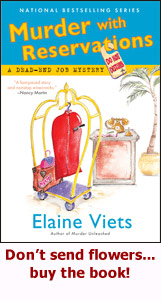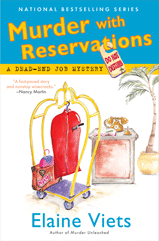New writers usually want to become published authors in part because they feel compelled to write, and if you're going to have a compulsion that strong, why not earn a living at it?
Usually, they also love books and reading, and spend a lot of time in bookstores.
For all that, they seldom know how the book business works. This isn't so odd. I don't really have more than a vague idea of how electricity works, but I use it every day. Still, if I decided I wanted to earn my living as an electrician, I'd study more, and try to apprentice myself to someone who knew what he or she was doing. If I decided I wanted to generate electricity and supply it to others, I'd study a lot, and talk to experienced experts.
So if you're a writer, and you're thinking about being your own publisher, you need to know how your new business works -- not the writing business, but the book business.
Here's a starter lesson on the economics.
The availability of a thing -- including a thing such as book -- does not mean it will be sold.
Simply making a book available (such as by self-publishing) doesn't put it into a store.
Likewise, simply listing it among hundreds of thousands of other books offered at an online store does not sell it and place it in a reader's hands.
But wait! Don't independent stores and even some big stores hand-sell books to their customers?
Yes, but...believe it or not, there is no law requiring booksellers to carry a book just because you think it's pretty darned good! Or even because you're insistent. A shame, isn't it?
Bookselling is not likely to make an independent bookseller rich. Large or small, bookstores are not intended to become literary charities, kissing money goodbye in noble sacrifice just because so many books -- yours, for example! -- are so darned good. They prefer to make at least some profit. The independent's resources are not those of a giant, so they must be careful with those resources.
The space in a bookseller's store is like retail space anywhere — valuable to the merchant. Choosing what goes into that space may (or may not) have more to do with love than it does at a big box store, but at the end of the day, both types of stores must make wise business decisions and believe they can sell what they stock.
And there are other considerations.
For traditionally published books, about 40% of the sales price goes to the bookseller.
The bookseller is also able to return unsold books to the publisher. (A few conditions apply.)
Additionally, the bookseller knows that the traditional publisher is making other efforts to try to help the book to be sold. Sending out copies to reviewers, seeking endorsements, paying for cover art, perhaps creating special displays, advertising, press releases, author tours, and other marketing efforts. In some cases, the publisher may be offering special incentives if the store will host an author appearance.
The bookseller also knows that the publisher is risking money on the book, has invested in this author, and to an extent is staking the publishing house's reputation on the quality of the book. The book was chosen through an editorial process -- an agent brought a likely manuscript to the house, an editor considered it carefully, a committee looked hard at the editor's choice, and decided if the house's resources should be spent -- and in most houses, the manuscript received several kinds of editorial attention before publication.
Now let's look at self-published works. Guess who decided the book should be published? Who did that person have to convince that it was worthy of resources? Guess who will be paying the discount to the bookseller, one way or another? The fact is, as JB Dickey pointed out in the
post I mentioned last week, from the Seattle Mystery Bookstore's blog:
In general, POD books are more expensive than regular trade paperbacks from the major publisher. That’s not odd as they’re a different system, scales of economy, etc. But they’re larger, thinner and end up not feeling as if they’re a good value. They also have been available at a lower discount, meaning that the bookseller has to pay more for the book and makes less profit on the sale of the book. (The industry standard is 40%, so out of the 40¢ out of every $1 we make on the sale, we pay the rent, the employees, the various costs of being in business.) It is impossible to stay in business when the discount for a POD is 15% or so. Can’t work. Ties up too much cash flow in stock and doesn’t bring in enough money to pay for the effort. The last thing about PODs is that, since they’re printed to fill the demand/order, they are non-returnable. Normally, unsold books can be returned to the publisher or wholesaler for credit. POD cannot.
Now, some small presses use POD technology and go out of their way to remedy some of these problems and do allow returns, but that's not likely to be the case for a self-published work. This means that it is seldom as profitable to the bookseller to stock self-published works as it is those of legitimate small presses and major publishing houses. I haven't even started talking about what happens when we bring a distributor into the picture.
I'm not saying you'll never see a self-published book in a brick-and-mortar store. But you don't have to be an economics professor to understand the obstacles the author of a self-published book faces in placing a book in stores. A bookseller can't afford to give up much space to books that bring in less than half the profit.
If your dream of being an author included dealing with this kind stuff as the publisher, then it was different than mine.
What you put on the page is — first, last, and always — what will have the strongest influence over your career as a writer. Not many people have so much control over what they do during their working hours. That's where your focus must remain: on the page.
Focus on your craft. Use the power you have over the page wisely. It will take you farther than you may expect.







